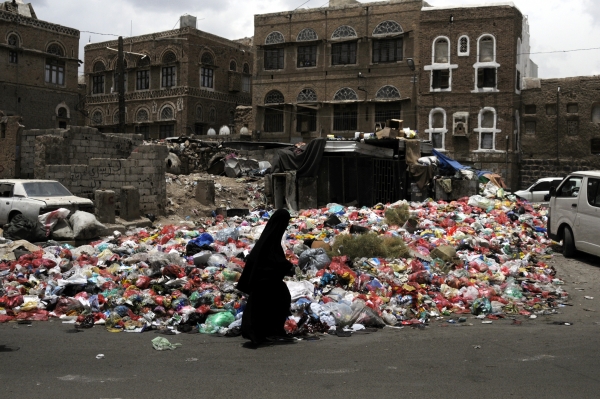Since the outbreak of Cholera, which has infected more than 124,000 civilians since the end of April as reported by the WHO, hospitals in the capital have received a huge number of people and have tried to limit the spread of the disease. Aid agencies and operators have implemented all kinds of treatment, such as providing support to the medical facilities in the country, and opening new centres to fight dehydration and chlorinating water, but all those methods have not been able to fully prevent the contamination that is likely to happen between patients and among those in the poor rural areas.
On 14 May, the authorities of the capital Sana’a declared a state of emergency as they could not handle the crisis. Half of the facilities of the country have been destroyed due to the conflict and the sanitary operators do not receive their salary. Cities are full of garbage and people, especially the three million displaced, who lack safe access to water and face famine risk. Currently these worrying events are devastating the country and its population more than bombs are.
At the current rate of spreading, the cholera cases are likely to reach more than 127,000 in the next seven months. The Humanitarian response has been implemented with coordination between UN, NGOs, local authorities and public institutions, but still needs more funding and vaccines.
For more information, please read:
https://www.irinnews.org/feature/2017/06/12/cholera-can-kill-quickly-yemen-it%E2%80%99s-taking-one-life-hour
http://www.irinnews.org/feature/2017/05/17/country-its-knees-cholera-takes-hold-war-weary-yemen
http://reliefweb.int/sites/reliefweb.int/files/resources/hb_may_2017_final_7_june_2017.pdf
http://www.un.org/apps/news/story.asp?NewsID=56935







